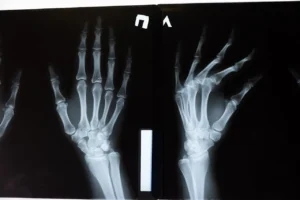
Azitra, Inc., a clinical-stage biopharmaceutical company dedicated to pioneering innovative therapies for precision dermatology, has unveiled preclinical findings from its cutting-edge platform and pipeline. These findings are being presented at the Society of Investigative Dermatology (SID) 2024 Annual Meeting in Dallas, TX, on Friday, May 17, 2024, in two oral sessions titled “Staphylococcus epidermidis for the topical treatment of epidermal growth factor receptor (EGFR) inhibitor-induced dermal toxicity” and “Cutaneous delivery of LEKTI via an engineered strain of Staphylococcus epidermidis for the treatment of Netherton syndrome.”
Travis Whitfill, Azitra’s co-founder and COO, expressed enthusiasm about the release of the preclinical data surrounding ATR-04 in EGFR inhibitor (EGFRi)-associated dermal toxicity. He stated, “These data exhibit robust preclinical efficacy of ATR-04 in models of EGFRi-induced dermal toxicities, bolstering our upcoming Investigational New Drug (IND) application to the FDA for a Phase 1b trial in patients experiencing EGFR inhibitors with dermal toxicity. We anticipate the augmentation of our clinical-stage pipeline this year with ATR-04.”
ATR-04 represents a live biotherapeutic product candidate comprised of an S. epidermidis strain derived from a healthy individual, meticulously engineered for safety by eliminating an antibiotic resistance gene and inducing auxotrophy to regulate its growth. ATR-04 is currently under development for EGFRi-associated skin toxicity, a condition triggered by the suppression of skin immunity by EGFR inhibitors, leading to inflammation and often heightened levels of IL-36γ and S. aureus. In the United States alone, approximately 150,000 patients grapple with EGFRi-induced skin toxicity.
The data showcased in today’s oral presentations illuminate the preclinical evolution of ATR-04. Across various models, ATR-04 demonstrated a reduction in S. aureus. In vitro skin models revealed a noteworthy 96% decrease in methicillin-resistant S. aureus (MRSA) upon ATR-04 treatment compared to untreated skin (p<0.0001). Ex vivo pig skin treated with ATR-04 exhibited an approximately 99% reduction in MRSA compared to untreated skin (p=0.012). Furthermore, in human skin models subjected to erlotinib, an EGFRi, ATR-04 decreased IL-36γ by 75% (p=0.009), bringing levels on par with untreated skin models. Additionally, ATR-04 boosted human beta defensin, a pivotal protein in host defenses, by 18-fold compared to vehicle. These findings collectively demonstrate the multifaceted efficacy of ATR-04 in addressing various drivers of EGFRi-induced skin toxicity.




